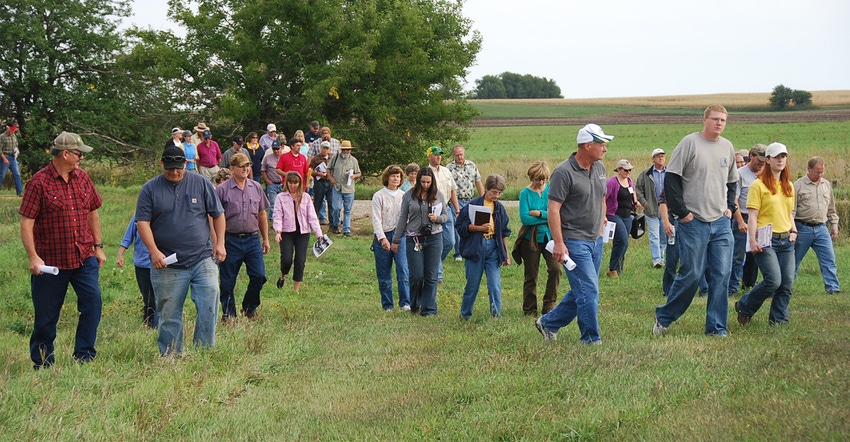September 13, 2018

Iowa State University Extension and Pheasants Forever will host a monarch and pollinator field day Sept. 26 near Winterset in south-central Iowa. The field day is designed for landowners and families who want to learn more about planting monarch and pollinator habitat.
The program will run from 10:30 a.m. to 2 p.m. and include a field tour of pollinator habitat planted by local landowners Don and Chris Eyerly and J.D. Schreurs. Attendees should meet at the Eyerly Farm at 1671 Fox Trail in Winterset.
Habitat, cost-share programs
There is no cost to attend the event, and a complimentary lunch will be provided. To assist with meal planning, RSVP to the ISU Extension Madison County office by Sept. 20 at [email protected] or 515-462-1001.
Kelsey Fleming, biologist with Iowa Pheasants Forever and Quail Forever, will give an overview of monarch habitat assistance and cost-share programs. Information about establishing monarch and pollinator habitat will be presented by Seth Appelgate, agricultural specialist with Iowa State University. Karen Kinkead, Iowa Department of Natural Resources wildlife diversity program coordinator, will speak about opportunities to participate in monarch butterfly monitoring efforts statewide.
Conservation benefits
“Conservation practices that include diverse habitat can provide benefits for Iowa’s wildlife, soil health and water quality,” Fleming says. “Anyone with questions about planting or maintaining pollinator habitat, no matter the number of acres, are encouraged to attend.”
Statewide monitoring efforts, which require coordination between state agencies and citizen scientists, provide another way to support conservation in Iowa. “The monarch butterfly population east of the Rocky Mountains has declined during the past 20 years, and Iowa can play a big role in their recovery,” Kinkead says. “Join us to learn about opportunities to monitor for monarchs in your local county.”
Source: Iowa State University
You May Also Like




